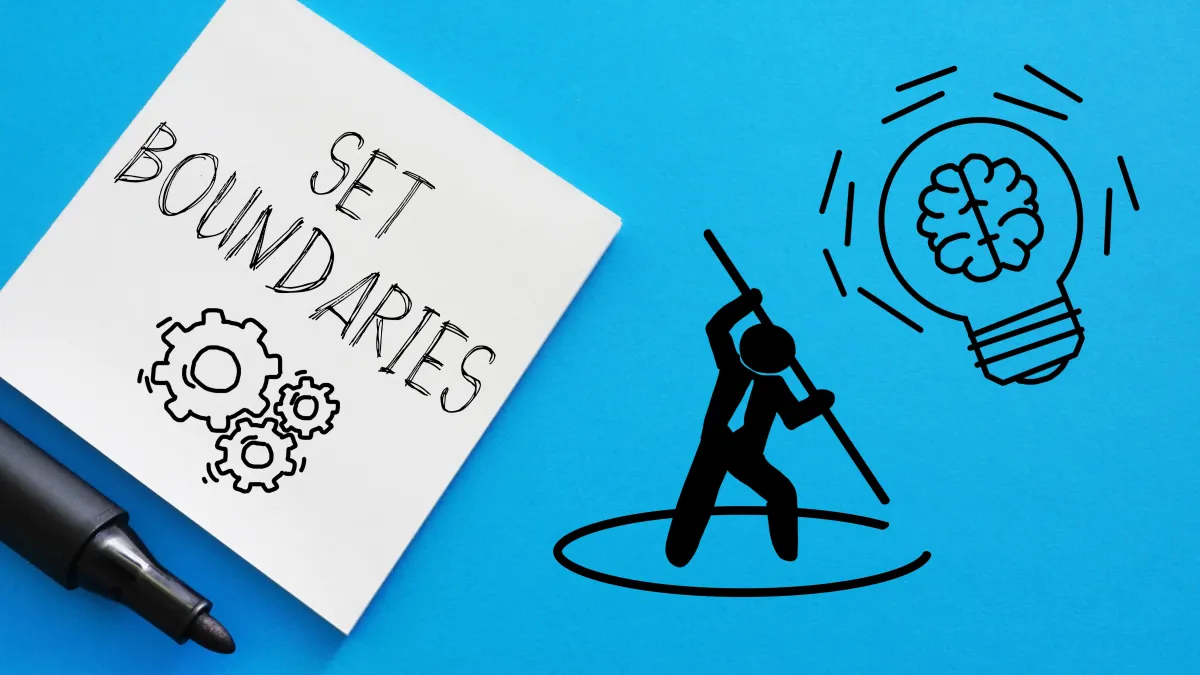
Coping Skill of the Week: Boundary Scripting
When Saying No Feels Too Hard
You know you’re burnt out.
You know you’ve been saying yes too much.
You know boundaries would help.
But how do you actually say the words?
That’s where most people get stuck.
Because it’s one thing to know you need boundaries and it’s another to voice them out loud, especially in relationships where you’ve been the reliable one, the fixer, the always-available, always-helpful go-to.
Saying no can feel like dropping the ball. Or worse, like letting someone down.
But boundaries aren’t walls. They’re bridges to healthier connection, built from honesty and self-respect.
And the best way to build them? Boundary scripting: the coping skill of pre-writing your limits so they’re ready when you need them most.
Why Boundaries Feel So Hard to Set
If you're someone who cares deeply, avoids conflict, or has a history of over-functioning for others, boundaries can feel unnatural and even selfish.
But in truth, the lack of boundaries is what leads to emotional exhaustion, resentment, and the slow erosion of joy.
And burnout doesn’t just show up in your schedule, it shows up in your body, your mood, and your relationships.
Setting boundaries is not about being rigid or uncaring. It’s about preventing emotional labor overload so you can keep showing up, just not at the expense of yourself.
The Power of Boundary Scripts
When emotions are high or people are persistent, it’s hard to think clearly in the moment. That’s why having go-to phrases can make all the difference.
Boundary scripting puts language in your back pocket so you don’t have to create it in the heat of the moment.
It’s the coping skill of preparing your voice before you need it.
Here’s how to use it:
Common Boundary Scripts (That Still Sound Like You)
When your plate is already full:
➔ “I’m currently at capacity and can’t take anything else on. I hope you understand.”
When someone asks for a favor you can’t give:
➔ “I really wish I could help, but I’m not able to say yes to this right now.”
When you’re asked to explain your ‘no’ (and don’t want to):
➔ “I’m prioritizing my mental health and energy, and that means saying no to anything that might stretch me too thin.”
When you need to reset expectations:
➔ “I’ve realized I need to make some changes to how much I’ve been saying yes. Going forward, I’ll need more space to rest and refuel.”
When you want to be kind and clear:
➔ “I care about you, and I want to keep showing up from a grounded place—so I have to say no to this one.”
Let Go of the Guilt
You’re not a bad person for protecting your energy.
You’re not selfish for saying no.
You’re strategic. You’re self-aware. You’re making burnout prevention a priority.
Letting people down occasionally isn’t failure. It’s part of being a human with limits.
In fact, the more you model healthy boundaries, the more permission others will feel to do the same. It creates a ripple effect. One honest "no" can teach others that their well-being matters, too.
Say It Before You’re Spent
If you’re running on fumes, it’s not too late. Coping isn’t about perfection it’s about pausing long enough to choose a better next step.
Start by choosing one script. Practice it. Say it out loud. Put it in your notes app.
Boundaries don’t always come naturally but they do get easier with practice.
This week, let boundary scripting be your buffer. Say no when you need to. Say it kindly. Say it clearly. Say it before you’re too tired to say anything at all.
Because protecting your peace is a skill and you're allowed to use it.
